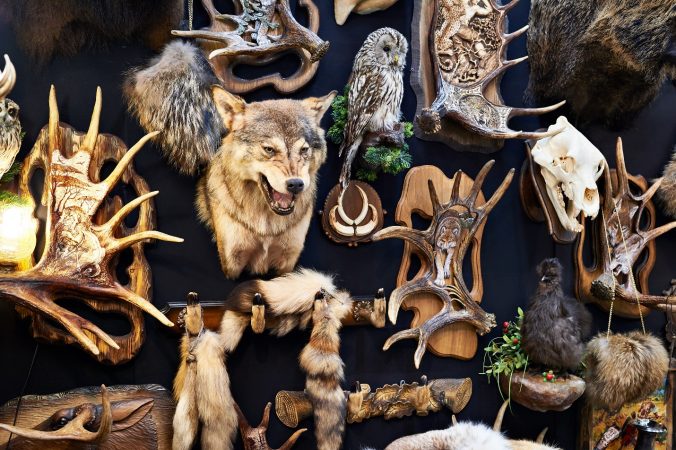You have no items in your cart. Want to get some nice things?
Go shopping
After the madness, after the blue-coloured sick in the street, after the just-right job out of nowhere, after the trains and the Scotch eggs and the bus ads and the pained nights and the broiling joy and the jacket smells and the eye-gloop mornings and the spiraling heights and the glints in the tea-brown waves and the air caked with smoke and the loo roll and the people you would absolutely throw yourself on the ground and die for they’re just that fucking great—
After five British years where the Englishes mixed in my mouth, crisps this and trousers that, after ripping over the Atlantic one last time, it teeming and frothing like some horny cartoon does at the mouth—
After all of that: Here I was, back in Toronto, back in Charlie’s car. The one that used to be her Mum’s, the one we’d gotten driven to soccer in, in the pouring summer rain with the smell of apple juice and gel pens. Now in forty-eight small hours, personal histories bent in on one another, a finger curled, and time placed me right back safely.
Returned. Recovered.
This time armed with a limp French fry and a TV in the backseat that cost plenty, no matter if you counted in dollars or pounds.
I’d turned my Franken-phone to airplane mode, now I was safely back on the ground. Its British body and Canadian SIM, like a body and a brain. In my panicked sentimentality on my last night in London – fueled further by five pints and two gins and the bittersweet distance about to tug a final time on my heart – I’d posted a rambling text monologue to Facebook, complete with a link to a forty-minute YouTube video: Oprah telling you how to take risks and find joy in the pain.
I’d deleted it in frantic shame in the morning on the way to the airport. But of course that didn’t matter. Everyone I’d ever gone to high school with, walked past once in the supermarket, had seen it and was thrilled to hear I was returning with a new haircut and expired health care, and when could we meet up, talk decades over fro yo or a breastfeeding sesh? (Theirs, not mine).
So I’d shut off the notifications until such a time as my time-lapsed bungle brain caught up with my plane-clammy body.
In the meantime, Charlie had a job to do. And, in the manner of childhood best friends, that meant I had one to do too.
While yellow-haired Charlie ran around the city delivering her ex-boyfriend’s rare and valuable Power Rangers action figures to internet bidders, I was to look after the expensive electronics in the backseat. Being too heavy to move more than once, but much more valuable than the vehicle itself, it was decided they would stay put in the car, and I would act as a kind of jetlagged human shield. If anyone with a crowbar and a bad idea came near, I suppose I was meant to swat them off with the fries or the straw from the greasy meal Charlie had bought me, to thank me for being the guard.
“So did he say you could take this stuff?” I’d asked innocently after Charlie had picked me up at my parents’ house, me full of my Mom’s lasagna and recovering from a restful first sleep in my childhood bed.
Apart from the action figures, Charlie had also taken a TV, stereo and chrome coffee machine off his hands. I peered back at the haul warily as she peeled down our quiet leafy street, drinking a milkshake the colour of Pepto Bismol with one hand.
“Soph. He’s literally fucking Heather Yashanitski in Mexico City right now. If he wanted this stuff he shouldn’t have left me his key.”
I twirled my hand in the air in a reasonable way as I reached over to change the music.
“I mean you don’t know that.”
“I know what I know,” she said. “Here – finish this.”
And she thrust the milkshake into my hand and made a U-turn towards her first Craigslist drop.
Now in some downtown parking garage I was left to consider my semi-permanent life migration choice while my cheeseburger digested and Charlie charmed some guy in an apartment upstairs into paying a hundred more for the yellow Ranger.
From the front seat I could just see a strip of sunlight past the concrete pillars. It was littered with a pop can, some cigarette butts, the cap for a bottle of washer fluid. I wondered if I’d woken up right then, in the car, straight from Heathrow, would I know which country I was in? Could I tell the Canadian straight away, from the brands on the litter in the oil puddles? From the script of the yellow numbers, spray-painted to mark the spaces – D3, D4, D5?
Maybe I’d made a mistake, coming back. If so, though, no mistake had ever made Mom and Dad so happy. And then I didn’t really have a choice, did I? What with what happened to Trevor.
I counted the hours on my fingers since I was in some grimy Soho bar, and how many times I’d peed since then. I tried to decide if there was any chance that a puddle of Fosters, the size of a pinky nail, could still be tucked inside my stomach somewhere, in some dimple of an intestine or something, however it worked. A liquid leftover relic inside me. The mingling of the shores.
As she drove us through our home city like a Mario Kart racer, Charlie kept looking my way pointedly, asking “What will you do when you see him?”
And I knew she didn’t mean Trevor, because I’d already been to the hospital the night before. I knew she meant him him. Coat-check-dry-lips-beating-hearts him. Drove-to-Montreal-through-the-night him. And I didn’t really know, so I just sunk myself deeper into the oversized high school hoodie I’d nabbed from my own closet.
In between a stop at a bungalow in midtown, and a snazzy condo by the lake, Charlie had watched me with worrying eyes at a stoplight. She could see I was in the throes of uncertainty. Tossed around in the middle of my decision like a baby dinghy out of its depths. And there was nothing I could do.
“It was your time,” she said. “Your time to go.” She was trying to be consoling, laid a hand on my knee. Then the light changed and she careened off.
When she said it like that, though, it sounded like I was already dead and resurrected here, in some kind of heaven that had cup holders and a Buzz Lightyear air freshener, but still smelled a bit like stale lip gloss.
All of a sudden in the parking garage I heard this big yell. A foghorn yell, like some really huge guy, and I ducked down, peered back through the headrest with a pounding, sleepy heart. But it was only a delivery guy, steering a truck driver towards the back of a loading bay.
I slowly turned around backwards in the seat and leant against the glove compartment to watch the men unload the truck. My view was imperfect with the big TV lodged in the way out the back window, but, afraid of my own phone, it would be my only source of amusement.
I saw that strip of sunlight inch closer on the left and wondered if it fell through the car, and I got overheated, could I sue Charlie for leaving me here like people do to dogs sometimes. Claim mal-friendship.
I wouldn’t. I loved her. The hardest messages I’d had come through since landing were the ones of my friends back there. And they pained because the time stamps were so off. The time difference had already broken some spell – everything now would always fall just left of the rhythm it needed to be. But Charlie would always be right on time.
Until I found a new job and new friends I knew life would be patchy. It would come in clumps. I imagined the weeks and the months spanning out in front of me. There were loads of ways you could think about filling them. The process of filling them. Generating a life like steam. Populating its cells, like on a calendar or an empty spreadsheet. Painting it like a painting. Or maybe the most complex craft I would ever make. And I had all the pipe-cleaners, the popsicle sticks.
Of course I’d have to spend time checking on Trevor. He was my younger brother, I was happy to do that. I loved him more than any CO2-choked city ever drummed up by arrogant Romans. And it would be great to spend normal time with my parents. Do the boring things. Hang the laundry. Go to Home Depot, buy curtain rods.
But the rest of it, eventually, would be up to me. The home-honeymoon would wear off. What’s your life, Soph? What are you replacing the old one with?
I worried I’d get amped-up on false romantic things. Wishy ideas of what would make my time meaningful. Like one time in London, right after a break-up, when I’d gone to some gallery opening on a whim, carrying my wine glass around like a weapon. Give me meaning, I nearly cried. Give me spontaneity.
I’d genuinely accidentally dropped an hors d’oeuvre at the foot of a gangly but handsome, kind-looking guy. I made a big thing of being bold and flirtatious and had pizazzed my way into going home with him, forcibly layering the serendipity on way too thick. In the end I’d called an Uber from his place before we’d even taken off our pants. I asked the driver to drop me at a Burger King and had eaten nuggets on a night bus the rest of the way home. I’d felt the anti-climax sneer through the light-streaked night window.
No, Toronto this time would be high-quality moments only. Organic, corn-fed true friendships. Ground-up stuff. Even if it meant staying in with my parents for a while and watching re-runs of House Hunters International.
As the guys pulled wrapped pallets of furniture from the big truck, I tried to plan out sturdy maps and goals in my head.
I’d join a water polo team. I’d set a very good bedtime routine. I’d paint at least one small thing a week. I’d keep up loving, transatlantic banter and save up money, once I was earning it, to plan a trip back in the next six months.
The thought of the distance, so recently small, now made me feel sick. In the weeks leading up to coming back, Charlie had helped me through my doubts over bedtime Skype calls. Her voice wavering over the ocean – “What is a border? Right? You know? Fuck.”
My stomach grumbled around the cheeseburger. I was going to need to pee soon, and wondered how much longer Charlie would be. I was still feeling puffed with feeling from our talk on the drive there.
“How’s Trevor then?” she asked.
“Char, I don’t know if I want to talk about it.”
“You probably should talk about it.”
I gave her a look. The turn signal clicked loudly in the car.
“I just mean he’s your brother. And he’s cute. He looks like a little … baby croissant. Even though he’s grown up now. He needs your love.”
“And he has it, Char. Please let’s talk about something else.”
Charlie nodded one resolute nod, eyeing up a pedestrian. A long silence as we cruised down Yonge St., grey and glass buildings resolute on every side. They’d seriously developed since I’d been away. I’d always come back for Christmas and see some new glittering blue thing shooting sixty stories high.
Then Charlie, all of a sudden:
“I mean I kind of get it. Sometimes when I go out I check the door about a hundred times. Or you’re sitting at the movies and you think – fuck me, I’ve left my hair straightener on, haven’t I? And in your head you see your house up in flames and the neighbour’s cat all singed.”
“Charlie. He’s seriously sick. It’s more than that. He washed his hands until they bled. They found him on the floor, he’d burned all his clothes, he thought he could disinfect them.”
My voice caught in my throat and my face crumpled. Charlie turned onto a side street and pulled the car over slowly. She put her arm around me and we sat in silence like that. I knew I looked like a building being demolished, that one slo-mo moment on pause where the bricks bust out.
After ten long minutes I wiped my eyes, blew a big long breath out through floppy lips, apologized.
“You’re like a fine wine, Sophie. You’ve only gotten better every damn day I’ve known you.”
I smiled, purple and soggy. I saw a memory of Charlie in grade ten English class, writing her own horoscopes on the backs of flyers for all-ages clubs, and then reading them to me with her gum snapping in her teeth.
“You have a knack for lunch meats, Libra. Stay focused and you’ll pick the right bologna.”
That was the year Charlie’s Mum passed away. As the cancer had progressed, we’d get picked up more and more by her Mum’s friend Peter, any time there was a faraway errand or field hockey tournament and my parents weren’t able to do it. He was short and strong and kept his cigarette butts in a little ceramic latch box in the front of his car. You could tell he was a bit afraid of us, with our orange eyeshadow one day, and self-righteous views about the varsity badminton team.
I’d always liked Peter loads, though. Right when you thought he was just a stern guy doing his duty, he’d toss some corny joke out, to us in the backseat. We’d howl with laughter – still young enough to revert to being kids –and in the rearview mirror I could see his little smile come and go.
Charlie swore Peter was only a friend to the family. He was just helping out. Charlie’s Dad wasn’t good at that sort of stuff. He wasn’t good at much of anything. But I knew Charlie had always suspected there was more. At her Mum’s funeral, Peter had shaken like a leaf in a storm, tears trailing down to his neck. Charlie’s Dad was nowhere to be found.
Finally the delivery guys were finished cramming all the furniture into a utility elevator. They slammed down the dirty metal door at the back of the truck and some guy waved thank you.
I sat up to turn back around the right way in the seat, and my weight popped open the glove compartment. A pile of papers and flyers and junk slid out and flopped onto the floor.
“Shit.”
At least now I had something to do. I bent over awkwardly and scooped everything up as best I could, almost knocking over the rest of my pop.
“Fuck…”
In between a folded menu for Greek take-out and a real estate magazine, there was a pile of glossy disposable-camera photos. Most showed nighttime moments streaked with orange exposure and white orbs of light. Most of them were Charlie’s Mom and Peter – a smiling eyebrow taken far too close, a backyard patio, an unwavering look of love and some 90s fashion outstaying its welcome into the mid-2000s.
A pile of autumn leaves. The birthday party of a family friend of Charlie’s parents, that I actually remembered happening, because Charlie had stayed at mine that night, eaten too much popcorn and puked into a drawer. Another photo showed Charlie’s Mom and Peter snug on a couch with brown sweaters and entwined hands and smiles to break sound barriers. They were well into their thirties but could’ve been sixteen for how ripe and bright their love appeared.
Did Charlie know these were here? Did she keep them on purpose? Or were they lurking there, not known about, a glowing answer to those uncomfortable childhood doubts?
I heard a jingle of keys and my heart slammed. Charlie was coming up to the car. I smashed the whole pile of photos and papers back into the glove compartment, slammed it shut with my hands and knees as she opened the driver door.
“Can you believe the audacity of these people who think that there’s any more iconic villain than Rita Repulsa in all of children’s media?”
I muttered something in solidarity. Charlie put the key in the ignition and then looked at me with suspicion.
“What’s wrong? You look sweaty.”
“Just jetlagged. Probably dehydrated.”
“We’ll get you some Gatorade. Only seven more stops.”
We pulled back onto those great North American boulevards, winding along in the grid-like valleys of office buildings.
I felt a swirl of guilt in my stomach, reacting with the chewed-up fries. Time and place created distances, pulled you out of step with those you were meant to be closest to. If I mentioned the photographs, I didn’t know if Charlie would shrug a shoulder, say she’d stashed them there, or if she’d stop the car completely, pull a dangerous maneuver, and drive us off towards Peter’s house, which, last I knew about, was an hour outside of the city.
“Gonna get some gas,” Charlie said as she turned the car into a station near Exhibition Place. At the intersection I’d seen glimpses of the lake through condo-dotted side streets, and I compared it to the Thames.
Charlie stopped by a pump, jumped out, and I watched her fill the tank, run inside, buy me two blue Gatorades and a stick of beef jerky. The tenderness of it made me want to cry again. I felt like a wet bathroom sponge and as a distraction, turned my phone back on. I switched on my data patiently and with terror.
A dozen messages and notifications ran up my screen, each promising plans that would be both perfect and pulverizing. A drink at The Centaur, its red, beer-matted carpets. A backyard barbecue at a house I’d dashed around naked in so many times.
It was a sickness of stretching. A mixing of joy and desperation that made the restless feeling. You didn’t often get one without the other, did you? Like God had designed life as a sliding scale, a pulley system. In euphoria, you were always close to sadness, and in sorrow you were never far from joy.
(But then, in other parts of life, another plane, maybe, you were only able to pick one, one, one – like people, or cities.)
I remembered stowing away in a Pret a Manger off of Charing Cross Road, a month before, making a WhatsApp call to Charlie on sub-par public Wi-Fi. My cracked voice broke in waves up to the satellite, soared down across the ocean.
I’d hid my face behind a coffee cup and explained to Charlie how it felt. My perfect contentment in one life, but the tugging feeling of another. I’d speak to my family and feel like I was running late to meet someone. Like running late and then your phone dies, and you can’t tell them that you’ll be there soon. They’re left on the other end to think the worst of it. With no way to explain, or reassure them.
“Char, I’ll be home soon.”
And then a man had cleared his throat pointedly. I was in the way of him enjoying his brie baguette, and I’d shuffled away.
In the month leading up to leaving, I’d acted out the whole thing in words and mental stage-plays, while brushing my teeth or boarding the tube. Trying to phantom-out the feeling of it, brace for the impact early so it would lose its strength when the real thing came.
I’d returned now, hadn’t I? That distance resolved, guilt absolved. The world folded in half like a piece of A4, 8½ by 11-inch paper, the edges kissing at the top.
Charlie returned to the car, handed me my bounty, pressed a loving fingertip into my heat-flushed cheek, and I came out of my thinking. We turned east, headed back towards Yonge Street.
Charlie turned some music on, fiddling with her ancient iPod and its ancient, probably flammable USB cord. A bit of late summer sun came out, flashing passing cars and store windows with a yolk-yellow light.
A song came on that I remembered making out with some volleyball player to, a million miles back in time from there. The past underlined the present and as we turned up Yonge to a blinding horizon, it felt very, certifiably, like we were living in the future.
At Bloor, Charlie tried for a yellow light and lost her nerve as it slipped to red. She slammed the brakes, sending her new blue Slurpee down the front of her shirt.
“Well wouldn’t it be…”
I helped out with stray napkins and a face towel I found in the back. I dabbed laughingly at her chest as she continued steering, passing parks and street corners and subway stations so saturated with memory they may as well have been holy ground. In no less way than Elephant and Castle became sacrosanct four years ago, or Vauxhall warranted tiny prayers for the rest of my life. But the feeling when the seatbelt sign dinged off, two days ago? It was an upper echelon of emotion.
A confusion, but a perfect relief.
Charlie called and cancelled her remaining appointments. She didn’t want to put off any buyers by turning up covered in blue syrup. She headed back towards my house, laughing and tapping her hands on the steering wheel. Lifted of some worry, I gently pushed my knee against the glove compartment, allowing chance to decide if it would pop open in my absence or not.
In a rush of desperate joy, I wanted to hug my brother and resurrect my childhood pets.
In fifteen minutes we pulled onto my street.
“Eat something. Something good from your parents. You look like an anemic tuna fish.”
I thanked her for her kind attention, reached to open the door and checked the street for passing cars. I looked across to my house and—
“It’s him.”
Nineteen-year-old-Skype-calls, speaking-through-the-night-in-romance-tongues-and-Jimmy-Eat-World him him him. He was standing on my front porch, laughing with my parents, my Mom holding a picture frame we’d bought yesterday at Home Depot, my Dad holding a tea towel and grinning into the sun. Since everything with Trevor, I didn’t see them glow like this too much.
I popped the car door open and they looked across. He waved, little satellite waves reaching me just one hundredth of a second after they happened. All of us, speaking and seeing, in some way, forever trapped back in time.
Charlie laughed, grinning as big as my Dad did.
“You look like shit. And he won’t care.”
I struggled out of the car, turned back to Charlie.
“This doesn’t change anything. I’ll pick you up later. Eight-thirty?”
I nodded, and closed the door, a heavy, time-soaked weightless smile starting on my face.
I turned to cross the street.

About Grace Flahive
Grace Flahive is a London-based Canadian writer of contemporary fiction who has published stories about shrimp bibs, VR headsets, cats named Gazpacho, and more. Her latest novel You Must Be Bathtub charts a transatlantic chase to recover a priceless USB drive. The novel is seeking an agent, and Grace is seeking to eat brunch with Beyoncé by 2024.
- Web |
- More Posts(1)




